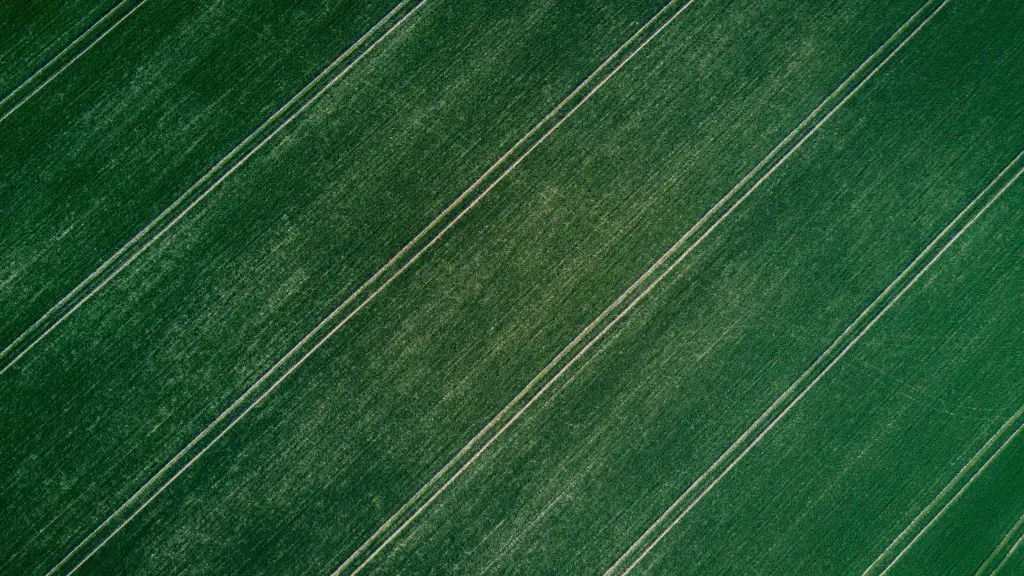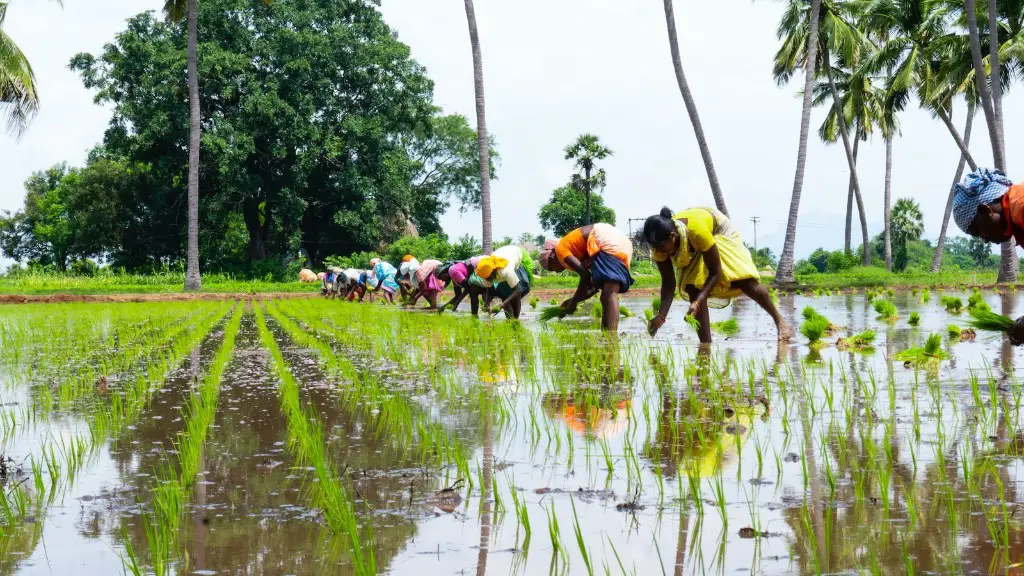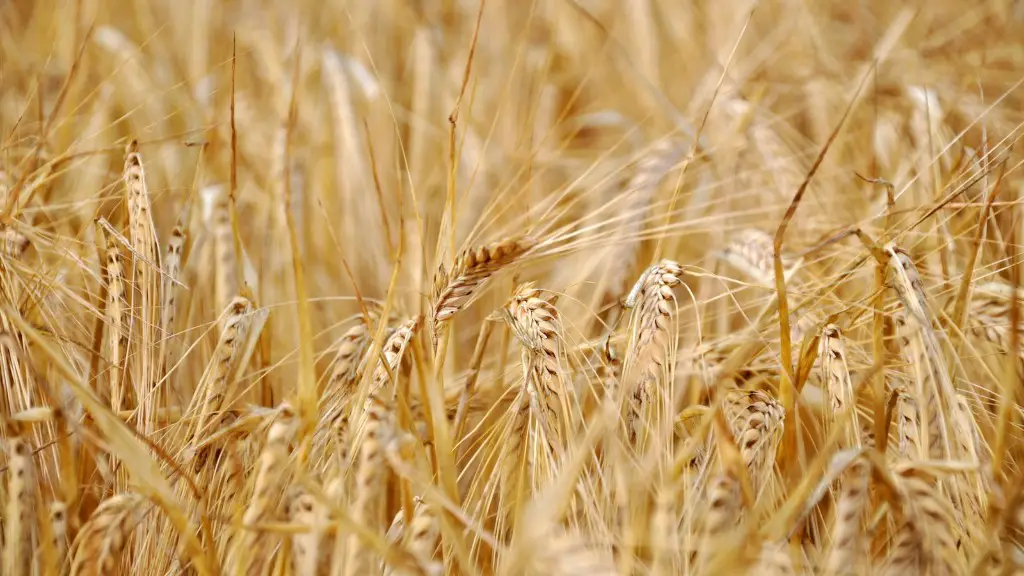Agriculture is one of the most important aspects of human civilization.It has been essential to humankind’s development of society throughout history, and its importance looks set to continue into the 21st century. Agriculture has always been a way to provide food and nutrition, to explore economic opportunities and to gain access to natural resources. Agriculture is an important part of the global economy and has been a key driver of development in many countries around the world. It is also responsible for providing employment opportunities, as well as providing a source of revenue to finance projects.
Agriculture is essential for ensuring that populations are provided with enough food to survive and thrive. It has a huge impact on how food is produced, used and disposed of. In poorer countries, where food resources are scarce and malnutrition is a major issue, the role of agriculture is particularly important. In affluent countries, where the majority of people have access to sufficient and nutritious food, the role of agriculture is seen as a way to promote environmental sustainability by reducing the environmental impact of modern food production.
Throughout history, agriculture has also been instrumental in allowing people to use land to their advantage and to build shelter, protect resources, and survive in the wild. It has allowed those living in remote areas to develop self-sufficiency and to produce food in times of scarcity. Additionally, the economic benefits of agriculture have been a major influence on global and local communities, enabling their inhabitants to have a steady and reliable source of income. Agriculture has played a crucial role in developing societies, as it has allowed people to have access to resources that they might not have had before.
Agriculture is also important for global health and nutrition. It has enabled people to have access to healthy and nutritious food, which can help to keep them physically and mentally healthy. By providing access to food, agriculture has enabled people to live in more isolated and rural places, where access to healthcare and other basic necessities may be limited. Additionally, agriculture has enabled people to produce different varieties of food, allowing them to have a more diverse diet, and to reduce the risk of malnutrition, leading to improved health and wellbeing.
Agriculture also plays an important role in environmental and ecological conservation. By ensuring that enough food is being produced to meet the needs of a growing population, agriculture is helping to reduce the impact of human activities on the environment. It is also helping to reduce the amount of land required for crop production, as well as contributing to a reduction in greenhouse gas emissions.
Impact of Agriculture on Society
Agriculture has had a dramatic impact on society throughout the centuries. It has shaped and transformed cultures, economies and societies around the world. It has enabled people to explore new and diverse cultures, and to gain access to new resources. Agriculture has enabled societies to become more productive and to develop new technologies that have allowed them to explore new methods of food production and increase the efficiency of their food systems.
Agriculture has enabled societies to establish trade links and to pass on ideas and practices through generations. As a result, it has resulted in the development of new ways of thinking and has expanded the knowledge of how to produce food in different climates. In addition, it has reduced poverty and created new wealth and business opportunities.
Agriculture has also contributed to global migration and the spread of cultures throughout the world. It has enabled people to explore and become exposed to different cultures and to move to new places, either voluntarily or as part of a forced migration. This has enabled people to create a shared sense of identity and belonging in the world, while also providing them with new opportunities and experiences.
Agriculture has been instrumental in enabling the growth and development of communities, by providing the resources and infrastructure needed to sustain a population. It has enabled people to become established in a certain area, and it has allowed them to develop their skills and knowledge and become successful in their chosen field of work. As a result, agricultural societies have been able to build strong and long-lasting relationships with their environment and have been able to develop a deep understanding of the mechanisms of their environment.
Impact of Agriculture on Global Economy
Agriculture is an essential component of the global economy. It has had a major impact on global trade and the development of economies around the world. By providing access to resources and by creating employment opportunities, agriculture has enabled people to trade their goods and services in order to gain access to other countries’ markets.
Agriculture has enabled economies to become more stable, as it has allowed them to produce enough food to meet the needs of their populations and to ensure that their populations have access to the essential resources they need. It has also enabled economies to diversify and to explore different sectors, such as agricultural tourism, aquaculture and agroforestry. These sectors provide employment and revenue opportunities for the local population, helping to boost their local economies.
Agriculture has been instrumental in enabling the growth and development of nations, as it has allowed people to become established in their chosen areas and to develop their skills and knowledge according to the available resources. By enabling people to trade and by providing resources, agriculture has enabled the development of many nations around the world, and has allowed them to become more prosperous and resourceful.
Agriculture has also enabled the growth of global markets and has enabled countries to become interconnected and interdependent. By providing access to resources, it has allowed countries to trade in goods and services on a global basis. This has enabled them to explore different export markets and to explore wider markets than they would have been able to explore before. Additionally, it has allowed them to become part of a globalised economy, where they are able to interact with other countries and take advantage of the opportunities available in the global market.
Impact of Agriculture on the Environment
Agriculture has had a significant impact on the environment, both for better and for worse. It has enabled people to develop technologies and practices that can help to reduce the environmental impact of food production. For example, by using sustainable practices, such as more efficient irrigation methods, less intensive livestock production, and using more efficient fertilisers, it has been possible to reduce the environmental impact of food production.
On the other hand, in some cases, agriculture has caused significant environmental damage. For example, intensive and unsustainable farming practices can lead to soil degradation, deforestation, loss of biodiversity and pollution. Additionally, the use of toxic pesticides can lead to water contamination and species extinction.
Agriculture has been an important source of renewable energy, with many countries exploring the use of biofuels. In addition, it has enabled the development of bio-products and organic farming, which can help to reduce the impact of certain chemicals on the environment. Globally, the use of renewable energy sources such as biofuels has enabled countries to reduce their greenhouse gas emissions and their reliance on carbon-based fuels.
Agriculture has also enabled the development of efficient and sustainable supply chains, reducing food miles and helping to reduce the environmental impact of food production. Additionally, it has enabled the development of more efficient technologies, such as precision agriculture, which has allowed for the development of more efficient practices that use fewer resources and reduce the impact of agriculture on the environment.
Agriculture in the 21st Century
Agriculture in the 21st century is more diverse and complex than ever before. With the development of new technologies, such as bioengineering, robotics, and artificial intelligence, the face of agriculture is rapidly changing. As a result, new challenges and opportunities have arisen, such as the need to develop sustainable and resilient food systems, the development of new crop varieties, and the ability to grow a wider range of crops.
Agriculture is a major industry, and it is important that governments, policy makers, and industry stakeholders are responsive to these changes and challenges. Governments have a crucial role to play in developing effective policies that can ensure sustainable agricultural practices, while industry stakeholders must be willing to invest in the development of new technologies, and the use of sustainable agricultural practices.
Agriculture in the 21st century is also changing due to the increasing pressure of climate change. This is leading to new challenges, such as rising temperatures, increasing floods and droughts, and extreme weather patterns that can negatively impact crop yields. As a result, governments and industry stakeholders must work together to develop strategies to mitigate the effects of climate change and to enable the development of more resilient and sustainable food systems.
Agriculture in the 21st century is a complex and ever-evolving system, and it is essential that governments and industry stakeholders continue to work together to ensure the sustainable development of food systems. As the world’s population continues to increase, the role of agriculture will become increasingly important in meeting the food and nutrition needs of people around the world.
Impact of Technological Advancements on Agriculture
In recent decades, technological advancements have had a major impact on agriculture. Advances in technology have enabled the development of more efficient agricultural production methods, enabling farmers to produce more food with fewer resources and in a shorter amount of time. For example, the introduction of genetically modified organisms, robotics, and artificial intelligence have enabled the development of more efficient and sustainable farming methods.
Technological advancements have also enabled the development of new production systems, such as vertical farming and hydroponics. These systems enable farmers to grow crops in a more controlled environment, eliminating the need for pesticides and reducing water consumption. Furthermore, they enable farmers to produce crops in an urban setting, enabling them to access urban markets.
Technology has also enabled increased access to information and data. This has enabled farmers to become more efficient and better informed, enabling them to make better decisions about their crops and production techniques. Furthermore, technology has enabled the development of new tools and systems to monitor and control the environment, enabling farmers to better manage their crops.
Technological advancements have also enabled the growth of precision agriculture, which enables farmers to monitor and track crop growth and yield in real-time. This can help farmers to better manage their crops and to reduce the amount of land and input that are required for crop production. Additionally, this type of agriculture has enabled the development of more sustainable production methods, as it can reduce the amount of land and water that is used for crop production.
Impact of GMOs on Agriculture
Genetically modified organisms (GMOs) have had a major impact on agriculture in recent years. GMOs have enabled the development of crops that are more resistant to disease and pests, and which require fewer inputs such as fertilizers and pesticides. Additionally, they have enabled farmers to produce higher yields of crops in a shorter amount of time.
However, there has been much controversy surrounding the use of GMOs in agriculture. Many have raised concerns about their potential health and environmental impacts, with some arguing that they can lead to the emergence of ‘superweeds’ and more resistant pests. Additionally, there has been a debate about the potential for GMOs to contaminate non-GMO crops, and concerns about the potential for them to create a ‘genetic monopoly’, enabling companies to control the production of food.
Despite these concerns, GMOs are increasingly being used in agriculture. In some cases, they are being used to address food insecurity and malnutrition in developing countries, where food resources are limited. In addition, they are being used to reduce the environmental impact of food production by reducing the amount of inputs such as fertilisers and pesticides that are required for production.
GMOs are an important part of the global food system, and they are set to have an increasingly important role to play in the future. It is essential that governments and industry stakeholders work together to ensure that they are used safely and responsibly, and that controls are put in place to ensure their safe use.




